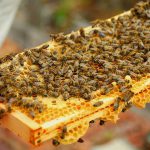
South Africa’s farmers are facing a challenging economic climate which seems to be forcing many medium-sized farms to amalgamate to form more viable commercial units. Nevertheless, if yours is a smaller-scale operation and you are prepared to review your farming methods, you have a better chance of succeeding in these more demanding market conditions.
Drought remains a persistent problem for all farmers in many areas. In fact, the 2018/2019 Agriculture Drought Report from Agri SA confirms that, solely due to drought, the agricultural sector has suffered a loss of R7 billion in turnover since January 2018.
Furthermore, the report suggests there is now considerable pasture deterioration, an increased risk of veld fires, and the likelihood of serious water shortages in some communities.
Despite these difficulties, the sector will still be asked to respond to the need to feed a rapidly increasing population. So, smaller farmers prepared to take on these problems can be sure there will be a market ready and willing to purchase their products.
Technology can unlock further potential
We assume that you are planting the best crop for the soil you have at your disposal (see the “Commercial farmer points of interest” heading on the soils page) and have high-yielding cultivars. What further interventions are there?
The use of drones and other UAVs (unmanned aerial vehicles) is one example of how you can use technology. Drones can come to the assistance of modern farmers dealing with challenging environments.
These and other tools and software apps use techniques such as GPS positioning data, remote sensing and proximal data gathering. You can then employ this data to comprehensively map the location, size and productivity of your farm.
This kind of aerial surveillance can return valuable information to you. You can then target costly resources such as fertilisers and pesticides, so that the right amounts are delivered at the right times to achieve maximum efficiency at minimum cost.
Sophisticated software can now also offer remote guidance to farmers from experts in specialist fields. You can get information such as how to quickly and efficiently take measures to combat destructive pests like the African Fall Armyworm.
Sending images to the relevant specialists can help you speed up a diagnosis and often prevent the widespread crop damage which would otherwise occur.
So, if you can take advantage of the education and training, mechanisation and technological support becoming available, there is a golden opportunity to move away from traditional practices which are especially vulnerable to fluctuating rainfall patterns.
If you can up your game, there is surely a win-win situation ready and waiting in South Africa’s agricultural sector.
By guest writer Matthew Hernon, an Account Manager at Dynamis
Relevant pages on Agribook.Digital include “Digital agriculture“, “Drones” and “Precision farming“.



Share this article







